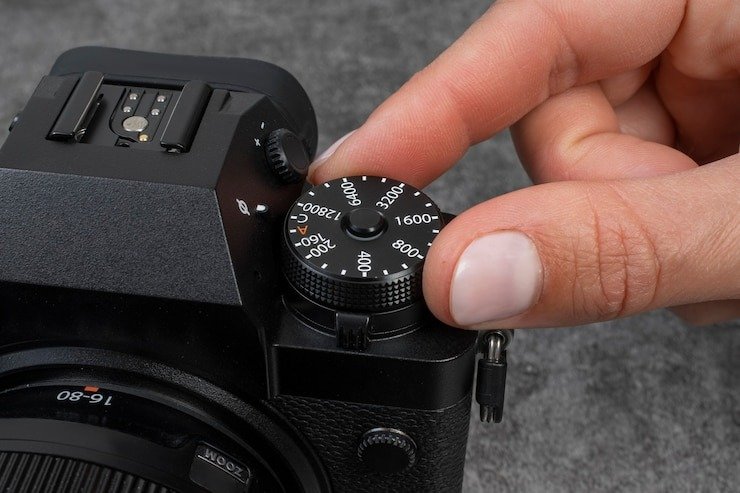In today’s digital age, phone tracking has become a critical tool for private investigators (PIs) and private detectives in gathering evidence, solving cases, and monitoring activity. While this task is complex and often involves legal and technical nuances, understanding how private investigators track phone calls provides valuable insight into modern investigation. This guide explores the various techniques, tools, and technologies private investigators use to monitor phone calls, track locations, and analyze call histories.
The Role of Private Investigators in Phone Call Tracking
Private investigators, often referred to as private detectives, are professionals hired to collect information, conduct surveillance, and solve various cases ranging from personal matters like infidelity to corporate concerns such as fraud or employee misconduct. One of the most powerful tools in a private investigator’s toolkit is the ability to track and monitor phone calls, which can reveal crucial details about an individual’s contacts, location, and activities.
Phone tracking methods used by private investigators vary depending on the type of case they are working on, the technology available, and the legal restrictions governing their actions. In general, phone tracking can involve the following:
- Call logs and history tracking
- Location tracking via GPS or cell towers
- Call recording (where legal)
- Analysis of metadata and phone usage patterns
Private Investigator Phone Call Tracking Methods Explained
Private investigators have several methods at their disposal to track phone calls. While the effectiveness of these methods depends on the case and available resources, the following techniques are commonly employed:
1. Call Detail Records (CDRs)
One of the most basic methods used by private investigators to track phone calls is accessing Call Detail Records (CDRs). These records contain detailed information about the calls made from or to a phone number, including the time and date of the call, duration, and the number called. While CDRs do not include the, they provide valuable metadata that can help investigators identify patterns and connections between individuals.
Private investigators usually cannot obtain CDRs without the consent of the phone owner or a court order. However, in some cases, if they are working alongside law enforcement or a legal team, they may be granted access through legal channels.
2. SIM Card Data Retrieval
Private detectives often rely on SIM cards for information retrieval. By extracting data from the SIM card, investigators can access the phone’s call history, contacts, and even some text messages. Specialized tools are used to read SIM cards, even if they have been damaged or removed from the phone. This can be particularly useful in cases where the subject has been trying to hide or destroy evidence.
3. Phone Number Lookup Services
Another essential tool in phone tracking is the use of phone number lookup services. These online services allow private investigators to identify the owner of a phone number and determine whether the number is linked to a landline or mobile device. Such services can provide additional information about the phone number’s carrier and location.
4. Cell Tower Triangulation
When tracking the location of a phone call, private investigators can use cell tower triangulation. This method involves identifying the phone’s location by analyzing its connection to nearby cell towers. As a phone moves, it connects to different cell towers, allowing investigators to pinpoint its location. Although not as precise as GPS, cell tower triangulation can provide a general area in which the phone is located.
In some cases, investigators may collaborate with telecom companies or law enforcement to obtain this data, as direct access requires permission and is tightly regulated due to privacy concerns.
How PIs Use Technology to Track Phone Call Locations
Location tracking is one of the most critical aspects of phone tracking, particularly when the goal is to monitor the movements of an individual. There are several technologies private investigators use to achieve this, each offering different levels of precision and legality.
1. GPS Tracking
One of the most accurate methods for tracking a phone’s location is through GPS (Global Positioning System) technology. If a private investigator has legal permission or access to a device equipped with GPS, they can monitor the subject’s real-time location. Many smartphones today come with built-in GPS tracking capabilities, and several apps allow for location sharing.
However, it is important to note that private investigators cannot legally install GPS tracking software on someone’s phone without their consent. In cases where the subject consents, or when working in conjunction with law enforcement, GPS can be a powerful tool for tracking movement and verifying alibis.
2. Mobile Tracking Apps
There are numerous mobile tracking apps available on the market that allow private investigators to monitor phone calls, messages, and location data. These apps, however, typically require installation on the target phone, which can only be done legally if the phone belongs to the investigator’s client or with the subject’s explicit consent. Many of these apps offer features such as call history access, text message monitoring, and real-time GPS tracking, making them invaluable for investigations that require comprehensive phone monitoring.
3. Bluetooth and Wi-Fi Location Tracking
In some cases, private investigators may use Bluetooth or Wi-Fi signals to track the location of a phone. This method works by analyzing the proximity of the phone to known Wi-Fi networks or Bluetooth-enabled devices. While less precise than GPS, this method can provide investigators with a general idea of the phone’s location, especially in urban areas with numerous Wi-Fi networks and Bluetooth devices.
How Private Investigators Monitor Phone Call History
Monitoring phone call history can provide private investigators with valuable insight into a person’s communication habits, allowing them to identify patterns, track contacts, and even discover hidden relationships. There are several ways private detectives can monitor phone call history, some of which involve specialized tools and techniques.
1. Spyware and Monitoring Software
Private investigators may use spyware or monitoring software to track phone call history. These programs, when legally installed on a phone, allow investigators to access the device remotely and view its call logs, messages, and other activities. This software typically runs in the background, without the phone owner’s knowledge, but it must be installed with proper consent to avoid legal issues.
2. Legal Subpoena or Court Order
In cases where the private investigator is working on behalf of a legal team or law enforcement agency, they may obtain a court order or subpoena to access the phone’s call history directly from the service provider. This is typically reserved for high-stakes cases involving serious legal matters such as criminal investigations, child custody disputes, or corporate espionage.
3. Data Extraction from the Device
Forensic tools used by private investigators can extract call history directly from the phone, even if the data has been deleted. Using specialized software, private detectives can recover deleted call logs, messages, and other important data that may have been erased to conceal evidence. This method is particularly useful in cases where the subject has tried to hide their communication records.
Private Investigators and Phone Call Tracking Techniques
Private investigators use various tracking techniques to gather information about phone calls. These methods range from basic observation to more sophisticated technology-driven techniques. Below are some of the key techniques used in phone call tracking:
1. Social Engineering
Social engineering is the practice of manipulating individuals into revealing confidential information. In the context of phone call tracking, private investigators might use social engineering tactics to obtain the subject’s phone number or gain access to their call records indirectly. This can involve impersonating someone the subject trusts or using pretexts to gather information.
2. Analyzing Phone Bills
Phone bills contain a wealth of information that can be useful to private investigators. By analyzing a subject’s phone bill, a PI can determine who they have been calling, how long the calls lasted, and any unusual activity such as calls made to unfamiliar or suspicious numbers. This technique is particularly effective in cases of infidelity or fraud, where phone communication plays a central role.
3. Pretexting
Pretexting is a technique in which a private investigator pretends to be someone else to obtain information. For example, a PI might call a phone service provider and pretend to be the phone’s owner to gain access to call logs or account details. Pretexting, however, can be legally risky, and private investigators must be careful to follow all applicable laws and regulations.
Phone Call Tracking Tools Used by Private Investigators
Private investigators rely on various tools and technologies to track phone calls and gather information. These tools range from software applications to hardware devices designed to assist in phone monitoring and tracking.
1. Spyware and Monitoring Apps
Spyware and monitoring apps are some of the most powerful tools used by private investigators to track phone activity. These apps can monitor calls, text messages, emails, and even social media activity. Popular monitoring apps like mSpy and FlexiSPY allow investigators to remotely access the target phone’s data, provided they have legal authorization to do so.
2. Data Recovery Tools
Data recovery tools are essential for private investigators working on cases involving deleted or hidden data. These tools can recover call logs, text messages, and other information that has been erased from the phone. Forensic tools like Cellebrite and Oxygen Forensic Suite are commonly used by investigators to extract and analyze phone data.
3. GPS and Tracking Devices
While GPS tracking software is commonly used for location monitoring, private investigators may also use standalone GPS tracking devices in cases where they are monitoring a vehicle or another object. These devices provide real-time location updates and can be used to track the movements of the subject.
Conclusion: The Future of Phone Call Tracking for Private Investigators
Phone call tracking continues to evolve as technology advances. Private investigators must stay informed about the latest tools and techniques to remain effective in their work. However, it’s essential for both investigators and their clients to understand the legal boundaries surrounding phone tracking and to ensure that any surveillance conducted is compliant with local laws and regulations.
For individuals seeking the services of a private investigator, phone tracking can be an invaluable resource in uncovering hidden information and solving complex cases. Whether tracking phone locations, monitoring call history, or analyzing communication patterns, private investigators play a crucial role in helping clients get the answers they need.




